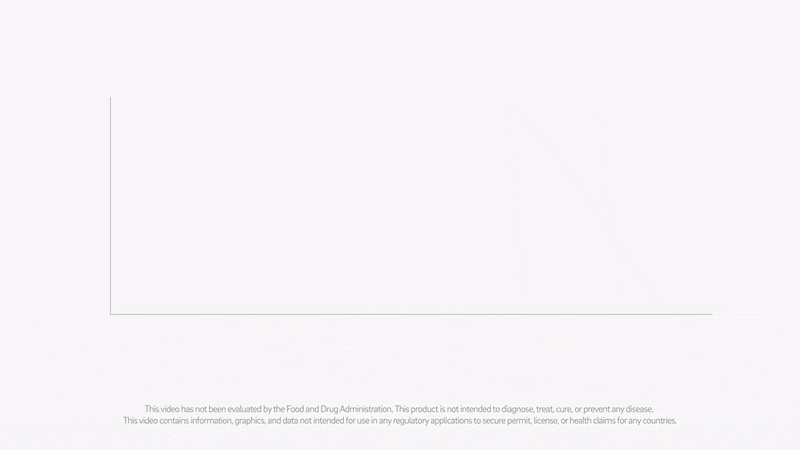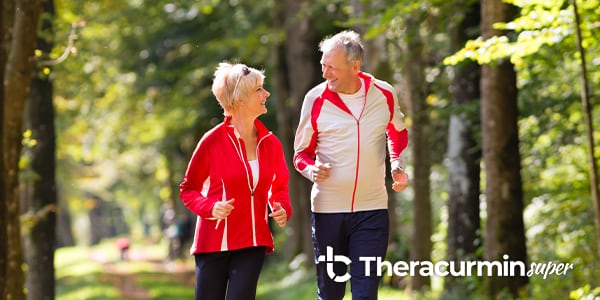As we age, our bodies face an increasing burden from oxidative stress and age-related health challenges.
Oxidative stress, caused by an imbalance between free radicals and the body’s antioxidant defenses, can damage cells, proteins, and DNA, accelerating the aging process. Chronic inflammation, often referred to as “inflammaging,” further compounds these effects, playing a role in conditions like arthritis, cardiovascular disease, and cognitive decline. While lifestyle factors such as diet and exercise are critical in managing these issues, recent research suggests that targeted supplementation may offer additional support.
One natural compound that has garnered significant attention for its antioxidant and anti-inflammatory properties is curcumin, the active ingredient in turmeric. However, despite its potential, curcumin’s effectiveness has historically been limited by its poor bioavailability – meaning the body struggles to absorb and utilize it efficiently.
This is where a breakthrough formulation, Theracurmin Super®, steps in, offering a solution that not only enhances curcumin’s absorption but also demonstrates clinically proven benefits for managing oxidative stress and inflammation.

The double-edged sword of exercise: Oxidative stress and aging
Physical activity is a cornerstone of healthy aging, with benefits ranging from improved cardiovascular health to enhanced mental clarity. However, it’s a lesser-known fact that intense or prolonged exercise can also induce oxidative stress. During exercise, the body’s oxygen consumption increases, leading to a surge in free radical production. While the body has natural defenses to counter this, excessive oxidative stress can overwhelm these systems, contributing to muscle fatigue, inflammation, and even long-term cellular damage.
This paradox – where exercise is both beneficial and potentially harmful – has led researchers to explore ways to mitigate exercise-induced oxidative stress without compromising the positive adaptations that come from physical activity. Antioxidants, particularly those with anti-inflammatory properties, have emerged as a promising solution. Among these, curcumin stands out for its dual ability to neutralize free radicals and modulate inflammatory pathways.
Curcumin: A natural ally with a bioavailability challenge
Curcumin has been used for centuries in traditional medicine, particularly in Ayurvedic and Chinese practices, for its healing properties. Modern science has confirmed its potential, with studies showing that curcumin can reduce inflammation, support joint health, and even protect against neurodegenerative diseases. However, a significant hurdle has always been its low bioavailability. When consumed in its standard form, curcumin is poorly absorbed by the gut, rapidly metabolized, and quickly eliminated from the body, limiting its effectiveness.
A breakthrough in bioavailability and clinical efficacy

To overcome the bioavailability challenge, researchers have developed advanced formulations that enhance curcumin’s absorption. One such innovation is Theracurmin Super®, a highly bioavailable form of curcumin that has been shown to be 85.2 times more bioavailable than standard curcumin.¹
This dramatic improvement means that more curcumin reaches the bloodstream, where it can exert its beneficial effects. The unique preparation method of Theracurmin Super® involves Amorphous Conversion Technology (ACT), converting rigid curcumin crystals into an amorphous, or dispersed, structure.
This process not only increases its solubility but also enhances its stability, allowing for greater absorption and longer retention in the body. In a comparative pharmacokinetics study, Theracurmin Super® demonstrated significantly higher plasma concentrations of curcumin compared to other formulations, confirming its superior bioavailability.¹
But does this translate to real-world benefits? A growing body of clinical research suggests that it does, particularly in the context of managing oxidative stress and inflammation.
New Research: Mitigating exercise-induced oxidative stress

A recent randomized, double-blind, placebo-controlled trial published in 2024 investigated the effects of 8-week Theracurmin Super® supplementation on exercise-induced oxidative stress in healthy adults.² The study involved 71 participants who were randomly assigned to receive either Theracurmin Super® (providing 120 mg of curcumin per day) or a placebo. Over the course of the study, participants engaged in regular exercise, and various markers of oxidative stress were measured before and after the intervention.
The results were striking. After 8 weeks, the group receiving Theracurmin Super® showed significant reductions in key markers of oxidative stress, including total oxidant status (TOS) and the oxidative stress index (OSI), both at rest and after exercise. Notably, these improvements were not observed in the placebo group. Interestingly, while some biomarkers like malondialdehyde (MDA) and 8-hydroxy-2′-deoxyguanosine (8-OHdG) did not show statistically significant changes, the overall trend suggested a protective effect against oxidative damage.
These findings are particularly relevant for individuals who engage in regular physical activity, as they suggest that Theracurmin Super® can help mitigate the oxidative stress associated with exercise, potentially aiding in recovery and reducing the risk of inflammation-related complications.
Beyond Exercise: Broader implications for healthy aging
While the study focused on exercise-induced oxidative stress, the implications extend far beyond the gym. Oxidative stress and chronic inflammation are hallmarks of aging, contributing to a wide range of age-related conditions. By reducing these underlying drivers, Theracurmin Super® may offer broader benefits for healthy aging.
Supporting this, additional research has explored the effects of Theracurmin Super® on other aspects of health. For instance, a randomized controlled study found that supplementation with a highly bioavailable form of curcumin improved immune function and reduced the severity of common cold symptoms in healthy Japanese adults.³
Another study demonstrated that Theracurmin Super® positively influenced autonomic balance, which is linked to stress response and overall wellbeing.⁴ These findings suggest that the benefits of Theracurmin Super® may extend to multiple systems in the body, making it a versatile tool for promoting health as we age.
Safety in long-term use: A key consideration
When considering any supplement, safety is paramount. Fortunately, Theracurmin Super® has been rigorously evaluated for its safety profile. A randomized, double-blind, placebo-controlled trial specifically assessed the safety of high-bioavailability curcumin in healthy adults.⁵ The study found no adverse effects associated with Theracurmin Super® supplementation, even at doses higher than those used in the oxidative stress trial. This reinforces the notion that Theracurmin Super® is not only effective but also safe for long-term use.
The future of curcumin supplementation

The development of Theracurmin Super® represents a significant advancement in the field of nutraceuticals, particularly for those seeking natural solutions to support healthy aging. Its enhanced bioavailability addresses one of the primary limitations of traditional curcumin supplements, and the growing body of clinical evidence underscores its potential to mitigate oxidative stress and inflammation – two key factors in the aging process.
As research continues to evolve, it will be exciting to see how Theracurmin Super® can be integrated into broader health strategies, whether for athletes looking to optimize recovery or for individuals seeking to maintain vitality and resilience as they age. For now, the evidence suggests that this innovative formulation offers a promising approach to harnessing the full potential of curcumin.
References
- Hirose A.; et al. Comparative pharmacokinetics of new curcumin preparations and evidence for increased bioavailability in healthy adult participants. Int J Clin Pharmacol Ther. 2022;60(12):530-538. doi:10.5414/CP204257.
- Li X.; et al. Effects of 8-week Theracurmin Super (TS-P1; curcumin) supplementation on exercise-induced oxidative stress: A randomized double-blind, placebo-controlled parallel clinical trial. Integr Med Res. 2025;14(3):10109. doi:10.1016/j.imr.2024.10109.
- Kuwabara Y.; et al. Effects of Highly Bioavailable Curcumin Supplementation on Common Cold Symptoms and Immune and Inflammatory Functions in Healthy Japanese Subjects: A Randomized Controlled Study. J Diet Suppl. 2024;21(1):71-98. doi:10.1080/19390211.2023.2185723.
- Kuwabara Y.; et al. Improvement in autonomic balance through 12-week supplementation of a novel curcumin formulation in healthy Japanese adults: A randomized, placebo-controlled study. Funct Foods Health Dis. 2024;14(6):388-406.
- Lee H; et al. Safety evaluation of high bioavailability curcumin in Healthy Japanese Adults: A Randomized, placebo-controlled, double-blind, parallel-group comparison study. Funct Foods Health Dis. 2023;13(12):702-716.






